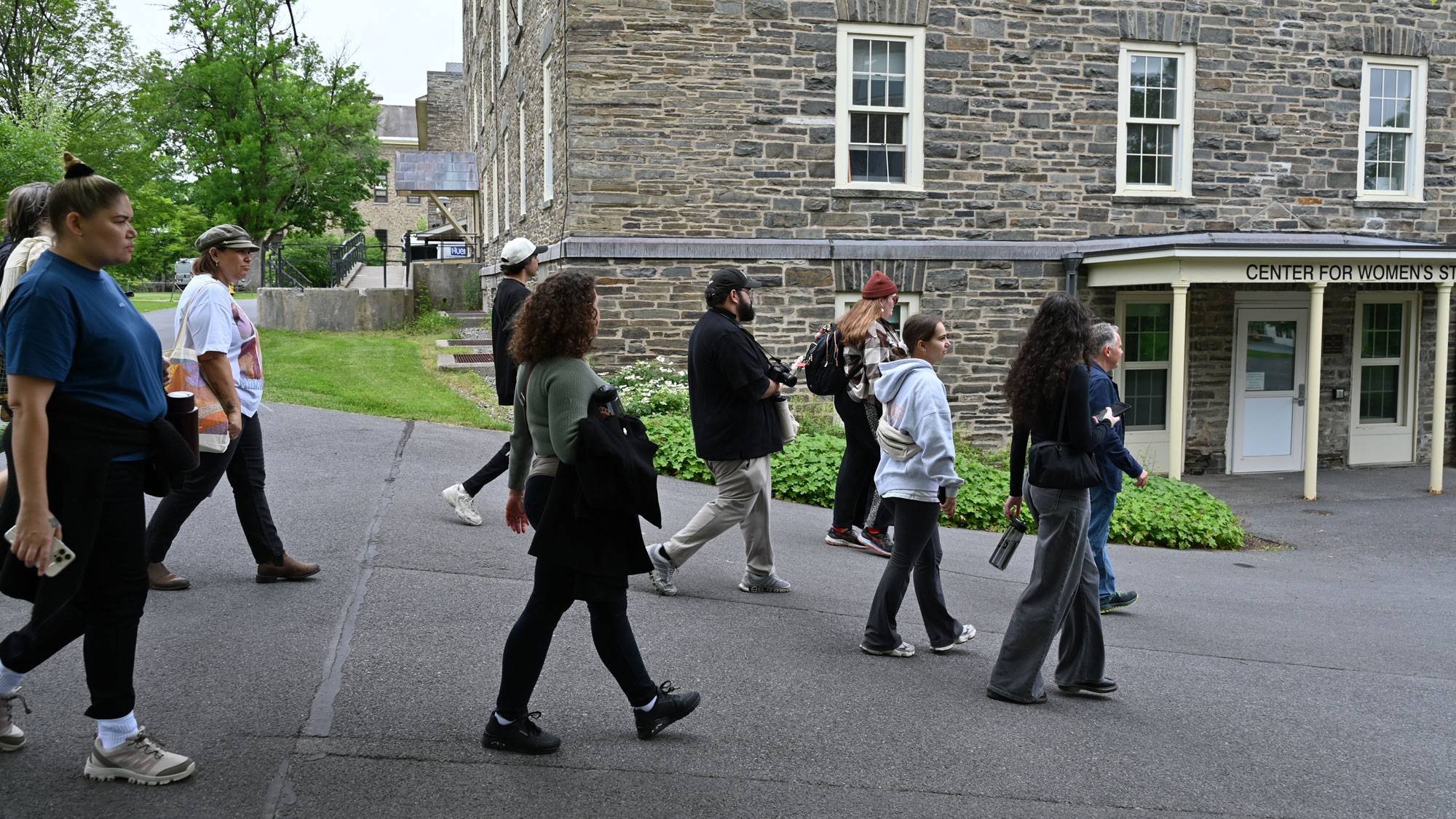In late June, Colgate University hosted students from Curtin University (Perth, Australia) for two weeks of cultural exchange, exploration of central New York geography, and Indigenous connections.
Geography professors Adam Burnett and Peter Klepeis, along with Colgate students Jannah Zabadi ’26 and Jack Mullen ’26, led the cohort of 12 exchange students and two Curtin faculty as they attended academic lectures, visited Native American nations, and connected with nature.
Colgate’s relationship with Curtin University began with work conducted more than a decade ago by Professor of Geography and Environmental Studies Emerita Ellen Kraly. In 2013, Kraly collaborated with Curtin colleagues to repatriate a collection of art held by Colgate and made by Australian Aboriginal children. She also developed an extended study to Western Australia that was eventually carried on by Burnett and Klepeis.
“These child artists are referred to as the stolen generation,” says Burnett, who has helped to maintain the relationship with Curtin in recent years. “They were removed from their families by government agencies under acts of their respective parliaments.”
These policies, implemented through much of the 20th century, bear clear parallels to the experiences of Indigenous communities in central New York, where children from Haudenosaunee and other nations were forcibly placed in residential boarding schools.
Thus, after leading several extended studies centered on Aboriginal culture in Western Australia, Burnett and Klepeis asked: “What would it look like to host Aboriginal students at Colgate and provide them with an experience similar to what Colgate students receive in Australia?”
“These experiences would, as a whole, create both a deeper understanding of what Colgate is, what the Colgate environment is like, and what the people of central New York are like,” says Burnett.
The program was implemented with these objectives in mind, combining academic lectures with local excursions. “We started with ice-breaking activities run by Outdoor Education, followed by an intergroup dialog session to help us understand each other better,” explains Burnett. The group then embarked on a camping trip to the Adirondacks with Outdoor Education, camping overnight in the high peaks.
“Getting to know the students from Curtin was so eye-opening,” says Zabadi. “They had so much wisdom to share about their life experiences, advice for my future, and interpretations of our excursions that were different from mine.”
Later, the cohort visited the local Oneida and Onondaga nations. At the Oneida Indian Nation, students were hosted for a day. “We were fed a great meal, and then we were allowed to see a lacrosse game,” says Burnett. The next day, they visited the Onondaga Nation, where they saw the Longhouse and the buffalo field.
“Later in the visit, we met with Angela Ferguson, whom Colgate awarded an honorary degree in 2024,” says Burnett. Ferguson’s food sovereignty project, Braiding the Sacred, involves locating, growing, and returning corn, beans, and squash seeds that were thought long-lost to their people.
“Meeting the women at the Onondaga Nation farm was a highlight of the exchange,” shares Zabadi. “The love, respect, joy, and healing they put into their work was unlike anything I had seen before.”
Though brief, Burnett also reflects fondly on the exchange, hoping that it will inspire understanding.
“Understanding can help heal trauma, so I hope that what we did may have helped contribute to that in even a small way,” he says. “And might this be a model for doing it again in the future, maybe with other extended study partners?”
